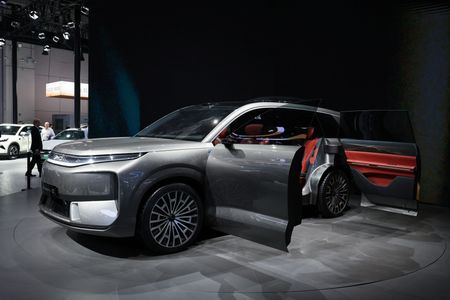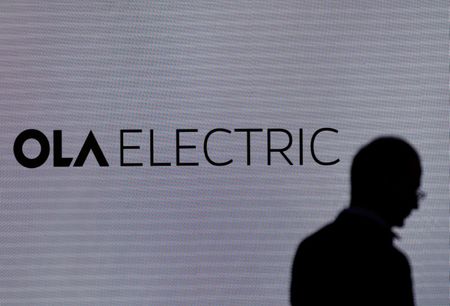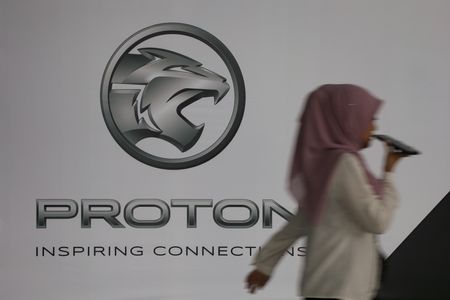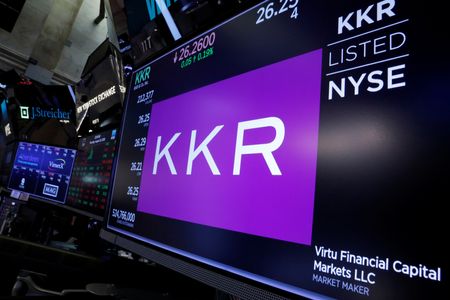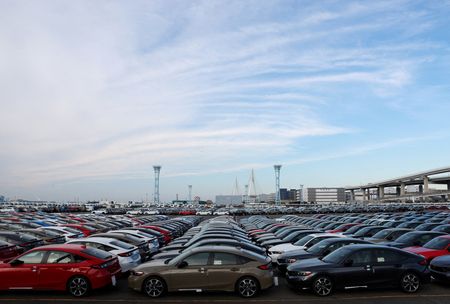(Reuters) -BYD has slashed its sales target for this year by as much as 16% to 4.6 million vehicles, two people with knowledge of the matter said, as the Chinese EV giant faces its slowest annual growth in five years and other signs that its era of record-setting expansion could be drawing to a close.
China’s largest automaker told analysts in March it was targeting sales of 5.5 million vehicles for 2025. But internally, the number has been downgraded multiple times in recent months, according to the people.
The latest figure of at least 4.6 million vehicles was communicated inside the company and to select suppliers last month to help guide planning, according to the people, both of whom spoke on condition of anonymity.
The target remains subject to change depending on market conditions, the people added.
BYD’s Hong Kong-traded shares, which were down 1.4% before the Reuters report, extended losses and were down 3.1% in the afternoon.
The people didn’t give a reason for the cut. However, one of them said it comes as BYD feels the heat from growing competition with rivals such as Geely Auto and Leapmotor.
Last week, BYD reported a 30% drop in quarterly profit, its first decline in more than three years.
BYD did not respond to a request for comment.
The latest target, which has not been previously reported, is below several recently lowered forecasts from analysts. This week Deutsche Bank said it expected BYD to sell 4.7 million vehicles while Morningstar said it expected 4.8 million.
The new target represents a 7% increase from last year and would be the slowest annual growth since 2020, when sales fell by 7%.
The pared-back outlook also speaks to the deflationary pressure weighing on the world’s second-largest economy, where domestic demand has been hit by a prolonged housing downturn. In the first eight months of this year, BYD has only met some 52% of its original 5.5 million vehicle sales target.
In just a few years, BYD has transformed itself from an EV upstart to one of the world’s most important automakers by doing much of its production in-house, allowing it to keep a lid on costs even as it rolls out cutting-edge features.
Its sales of pure electric vehicles and plug-in hybrids grew ten-fold between 2020 and 2024, to 4.3 million vehicles, putting it on par with General Motors and Ford in terms of global sales.
Yet it is now showing undeniable signs of a slowdown, especially in its main market China, which accounts for almost 80% of its sales and is in the midst of a bruising, years-old price war.
BYD has slowed production and delayed capacity expansion at its Chinese factories, Reuters reported in June.
BYD’s sales of economy cars – those that go for under 150,000 yuan ($21,000) and make up the bulk of its domestic sales – fell 9.6% in July versus last year, according to Reuters’ analysis of its filing and a sales breakdown by Chinese auto data platform DATADIC.
By comparison, Geely’s sales of cars in that price segment jumped 90% year-on-year in July.
Geely raised its annual sales target for 2025 to 3 million vehicles from 2.71 million, its executives said during an August earnings conference.
BYD’s production slid for a second straight month in August, marking its first consecutive monthly contraction since 2020.
(Reporting by Reuters Staff; Editing by David Dolan and Kim Coghill)

